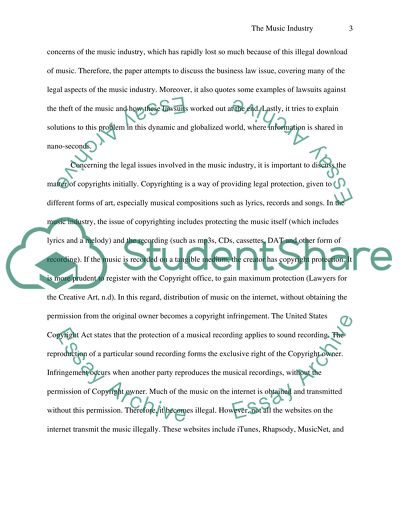Cite this document
(The Music Industry - Legal Aspect Essay Example | Topics and Well Written Essays - 1750 words, n.d.)
The Music Industry - Legal Aspect Essay Example | Topics and Well Written Essays - 1750 words. Retrieved from https://studentshare.org/law/1430600-thesis-the-music-industry-loses-millions-in
The Music Industry - Legal Aspect Essay Example | Topics and Well Written Essays - 1750 words. Retrieved from https://studentshare.org/law/1430600-thesis-the-music-industry-loses-millions-in
(The Music Industry - Legal Aspect Essay Example | Topics and Well Written Essays - 1750 Words)
The Music Industry - Legal Aspect Essay Example | Topics and Well Written Essays - 1750 Words. https://studentshare.org/law/1430600-thesis-the-music-industry-loses-millions-in.
The Music Industry - Legal Aspect Essay Example | Topics and Well Written Essays - 1750 Words. https://studentshare.org/law/1430600-thesis-the-music-industry-loses-millions-in.
“The Music Industry - Legal Aspect Essay Example | Topics and Well Written Essays - 1750 Words”, n.d. https://studentshare.org/law/1430600-thesis-the-music-industry-loses-millions-in.


